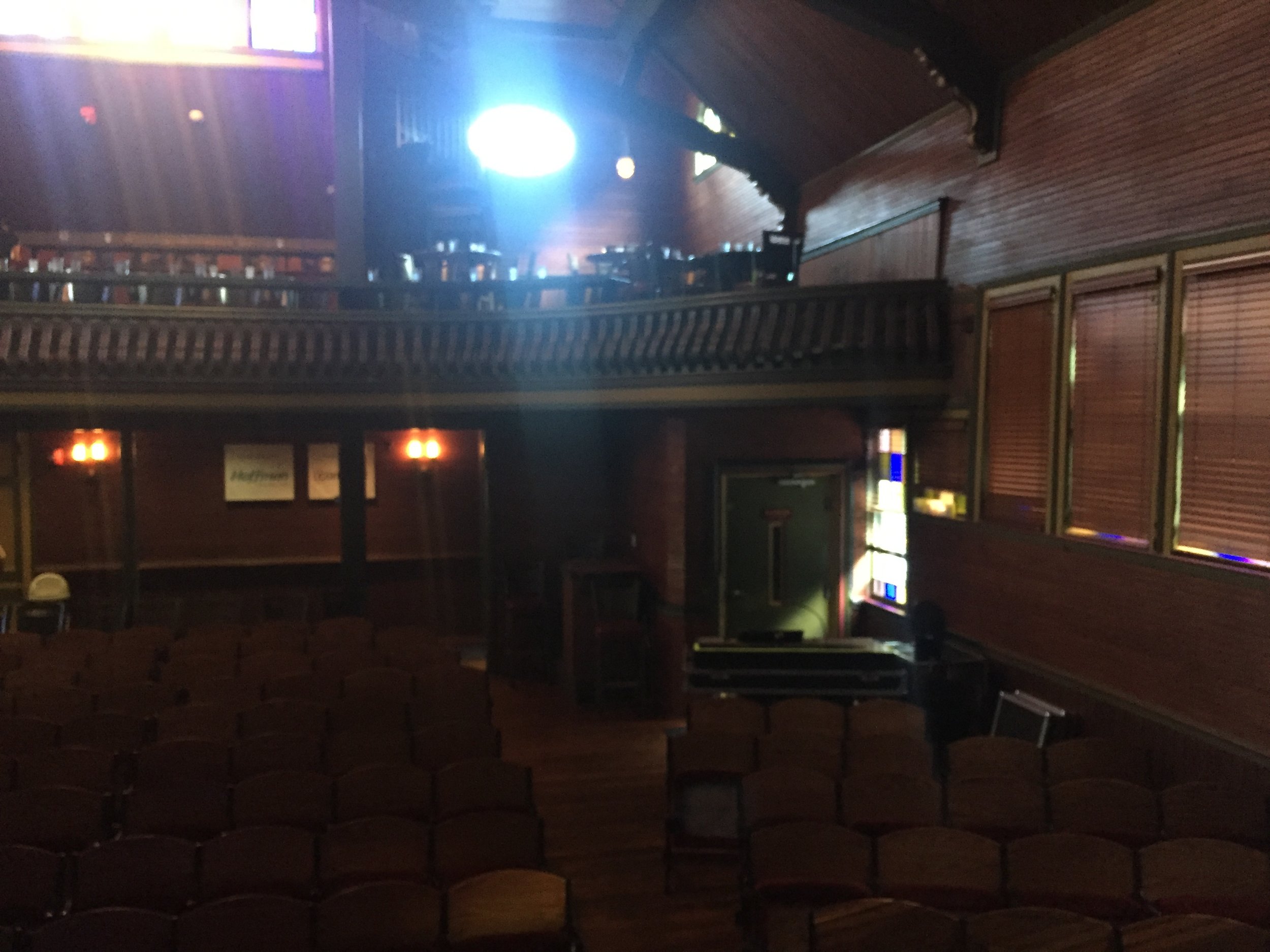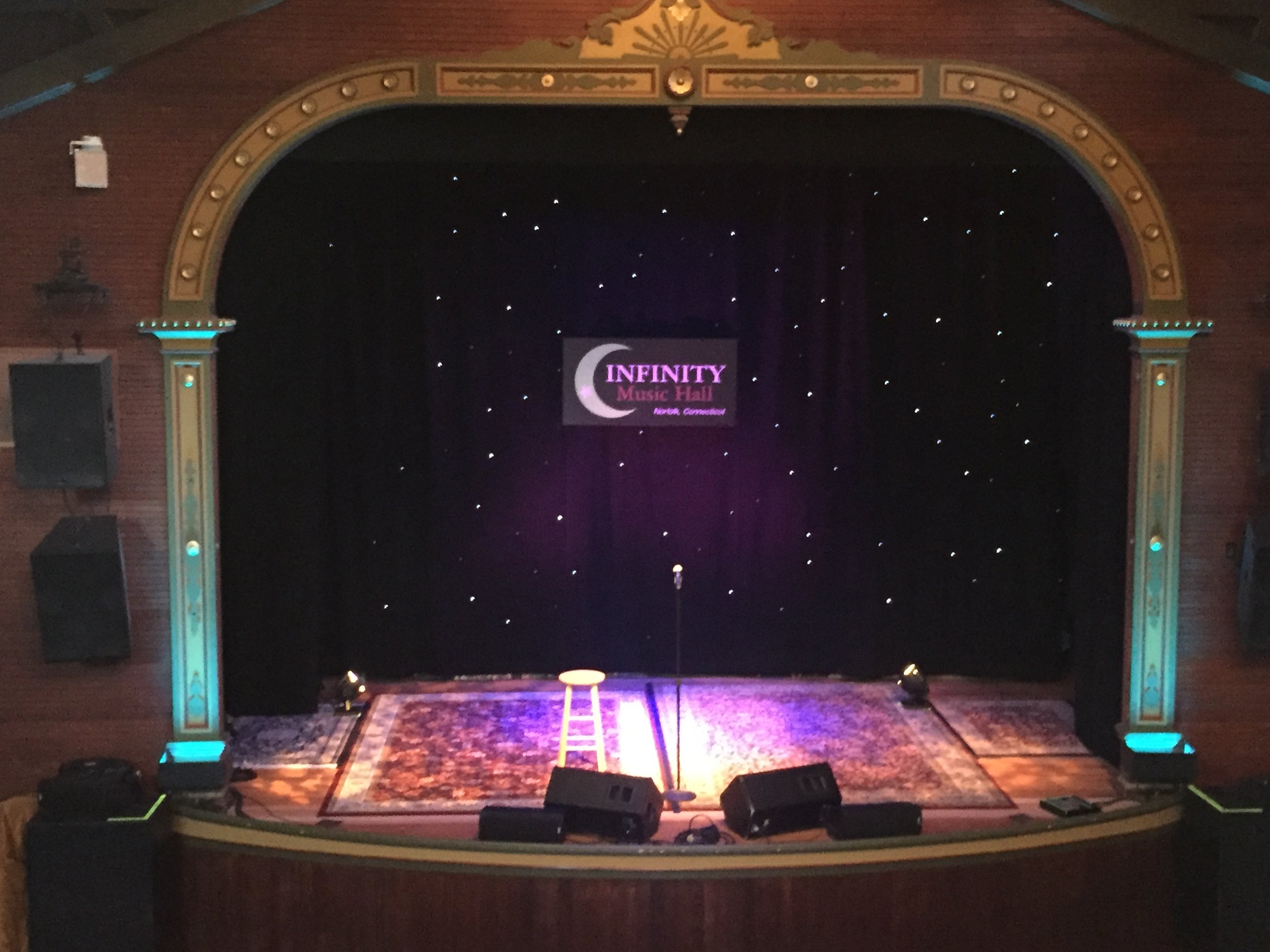I told the story of my decision to confess to a crime I did not commit after a $7,000 deposit went missing from the McDonald's that I was managing in Bourne, MA, and a police officer made the decision that I had stolen the money. It's a story about the series of interrogations leading up to my decision to confess to the crime rather than risk jail time, and the moment in the police station, while standing in a mop sink in a dark closet, that changed my life.
After the show, three people - two storytellers and an audience member who is a fan of my work - all approached and said almost the same thing:
"I can't believe you hadn't told that story yet."
A year ago, one of The Moth's producers - a woman who knows many of the stories from my life that I have yet to tell - said almost the same thing to me:
"I can't believe how many of your big, crazy, unbelievable stories that you haven't told yet."
It's true.
In five years, of storytelling:
- I've competed in 43 Moth StorySLAMs and won 21 of them.
- In those same five years, I've competed in 14 GrandSLAMs and won four of them.
- I've also told stories at half a dozen Moth Mainstages, almost 50 Speak Up events, and many, many other shows throughout the country and around the world.
Yet it's taken me all this time to tell the story about the time I was arrested for a crime I did not commit.
Kind of a big story to keep under wraps for so long. Right?
But this is the secret that I tell people when I'm teaching them about storytelling:
Everyone has a story, and oftentimes, your biggest stories are not your best stories. Those enormous, unbelievable, insane, life changing moments from your life are probably not as compelling as the smaller moments that happen all the time but go unnoticed by so many of us.
Some of the stories that I have told that people love most take place at my dining room table, in my bedroom, while standing in a line at a baseball game, and while sitting across from a friend in a restaurant. Seemingly tiny moments like these - when recognized, captured, and crafted well - are oftentimes so much more compelling than the life-or-death moments that I've spent in police stations or hospitals or jail cells.
Don't get me wrong. There'a a way to tell those big stories, and I've told many of them.
- A car accident two days before Christmas that left me dead on the side of the road.
- A horrific, armed robbery that still plagues me to this day.
- A vicious and unparalleled attempt to assassinate my character and destroy my career by a group of anonymous cowards.
- A bee sting that left me dead in my dining room when I was a boy.
- The story of my homelessness.
The key to telling these big stories is to forget why they are "big" and instead find the tiny moments within them. The moments to which people can connect.
My car accident story is not so much the story of the accident. It's about a moment in the emergency room between me and my teenage friends that still lives in my heart today.
The story of the robbery isn't so much about the horrors of that night. It's about the way that events of that night have changed the way I see my children and the world today.
The story of the attempt to destroy my teaching career isn't as much about what those people did to me, as unbelievable and unprecedented as it was. It was about the moment when parents, students, and colleagues stood up for me and let me know that I meant something to children when I had begun doubting myself and my career.
The story of my death by bee sting isn't so much about the way I died and was brought back by paramedics. It's about the connection that my mom and I created in that moment - a connection that was finally broken (or perhaps not) on the day she died.
The story about my homelessness isn't about my means of survival on the streets. It's about the shame associated with being helpless and alone and being saved by people who discover a truth you're unwilling to admit to anyone in your life (even yourself).
And last night, the story wasn't about my decision to confess to a crime I didn't commit and my subsequent arrest. It was about a moment in a closet in a police station, while standing in a mop sink, when I asked a question aloud, received an unexpected answer, and discovered that perhaps I wasn't as alone as I thought.
Big stories made small by avoiding the focus on the unbelievable and instead finding the part that everyone can understand. The part that everyone else has experienced and connected to.
Not everyone has gone through a windshield, but everyone one knows what it's like to be disappointed by parents and saved by friends.
Not everyone has experienced character assassination on an enormous scale, but we have all experienced moments of doubt about ourselves and our life choices.
Not everyone has decided to confess to a crime they did not commit, but we have all experienced the sense of being so alone that it hurts.
The good news about all of this is that you don't need to have led a life of unending disaster in order to be a great storyteller. You simply need to open your eyes to the tiny, incredibly meaningful, oftentimes missed or forgotten moments that people love.
Find them. Capture them. Craft them. Tell them.
I still have some doozies left. Some enormous, unbelievable, life changing stories. And eventually I'll get around to telling them. But don't hold your breath. I have a million tiny moments, too, and I can't wait to tell most of them.






















